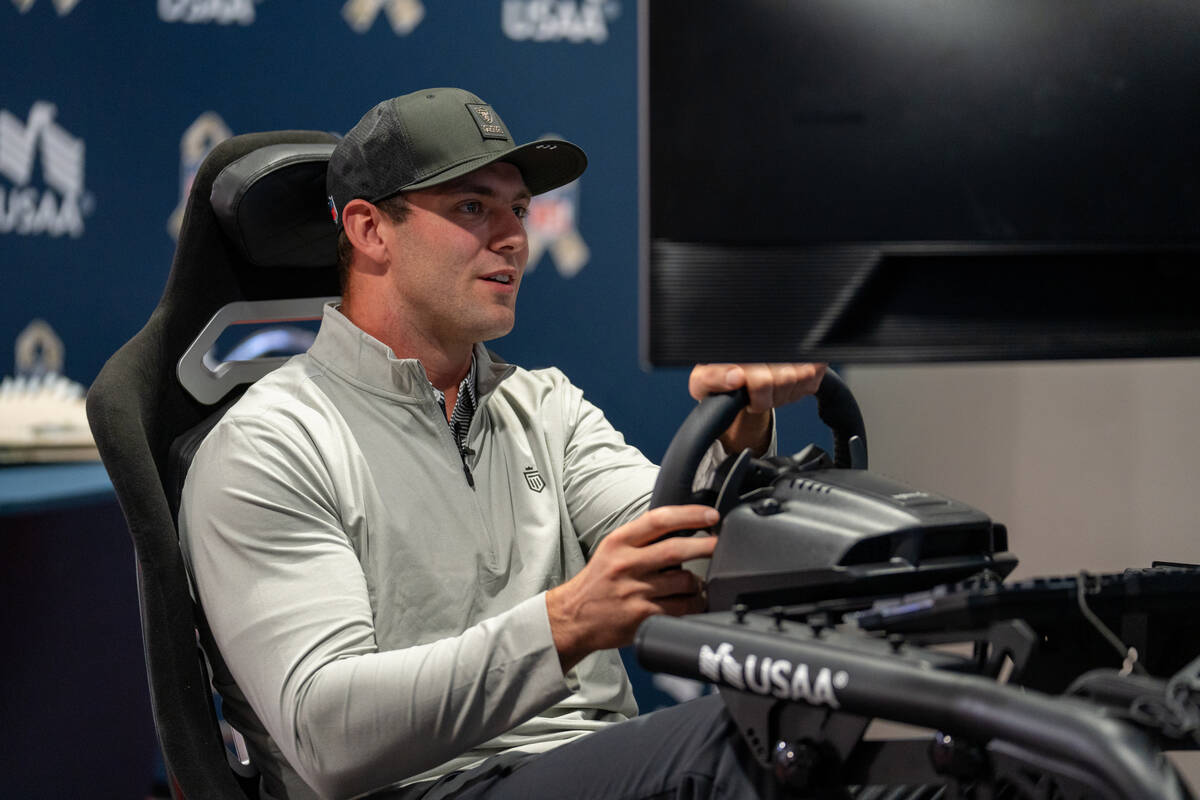Sports
Raiders’ Brock Bowers Champions Safe Driving for Teens

In an effort to promote safe driving among teenagers, Raiders tight end Brock Bowers is leveraging his growing influence as an NFL player. His campaign comes during National Teen Driver Safety Week, a time when awareness around the dangers of driving is particularly critical. In 2023, motor vehicle crashes emerged as the leading cause of death for individuals aged 15 to 18 in the United States, with the National Highway Traffic Safety Administration reporting 2,611 fatalities involving teen drivers.
On October 13, 2023, Bowers partnered with the United Services Automobile Association (USAA) and the Metropolitan Police Department to highlight the importance of safe driving habits. “I think it’s really important to the community,” Bowers remarked. “It’s a little dangerous out there, so I’m just trying to relay the message of safe driving and really get that message across to young people.”
Bowers, now in his second season with the Raiders, noted that driving in the Las Vegas Valley presents unique challenges. He described local drivers as more aggressive compared to those in other cities he has lived in. “It’s a little crazier than some other spots I’ve been (to),” he stated. Young drivers like Gavin Simmons, a sophomore at UNLV originally from Oregon, echoed Bowers’ sentiments about the differences in driving culture. “As a 19-year-old driver out here in Vegas, it’s really nice to see a professional athlete that a lot of us teenagers and young adults watch every Sunday speak about day-to-day stuff that we see,” Simmons said.
Increasing Road Safety Awareness
With the end of the year approaching, a time often marked by celebrations, the message of road safety is especially urgent. Metro Lt. Cody Fulwiler highlighted that the final months of the year are particularly deadly, with 47 fatalities reported between October and December of 2024 due to motor vehicle crashes. Tragically, this October alone has already seen eight traffic deaths, including two young children.
“Any fatality is a tragedy, but especially when it’s a juvenile,” Fulwiler noted. The event at UNLV featured interactive driving simulators provided by USAA, allowing participants to experience the effects of distractions and impairments while driving. Fulwiler emphasized the value of such simulations: “If they can see those effects in a simulator fashion rather than being out on the roadway, it’s so much more important to do that.”
Simmons observed a direct correlation between the nightlife of Las Vegas and the prevalence of impaired driving accidents. “The Vegas culture in itself has a lot to do with adults out there partying, having fun,” he said. “But having opportunities like this helps us young people see the actual numbers.”
Essential Safe Driving Tips
Beyond the events and discussions, both Bowers and Fulwiler stressed the necessity for parents and guardians to engage in conversations about safe driving. Fulwiler pointed out that it’s crucial to emphasize safety not just while driving, but also during discussions outside the car. “Having those conversations about the impact that a tragedy can have is essential,” he stated.
As 2025 approaches, Fulwiler recommends that all drivers, especially teens, adhere to key safety practices:
– Put phones away; they can wait.
– Avoid speeding.
– Prepare for the time change and the earlier darkness.
– Stay vigilant for an increase in motorcyclists, bicyclists, and pedestrians as the weather cools.
– Never drive under the influence of drugs or alcohol.
“If you’re going to be doing that type of stuff, then please ride share or stay at one of the hotels we have across Las Vegas,” Fulwiler advised. “Lives can be changed in an instant.”
Through initiatives like these, Bowers and local authorities aim to foster a culture of safety among young drivers, making a significant impact on the roads of Las Vegas and beyond.
-

 Science2 weeks ago
Science2 weeks agoIROS 2025 to Showcase Cutting-Edge Robotics Innovations in China
-

 Politics2 weeks ago
Politics2 weeks agoJudge Considers Dismissal of Chelsea Housing Case Citing AI Flaws
-

 World2 weeks ago
World2 weeks agoBravo Company Veterans Honored with Bronze Medals After 56 Years
-

 Lifestyle2 weeks ago
Lifestyle2 weeks agoStone Island’s Logo Worn by Extremists Sparks Brand Dilemma
-

 Top Stories2 weeks ago
Top Stories2 weeks agoIndonesia Suspends 27,000 Bank Accounts in Online Gambling Crackdown
-

 Health2 weeks ago
Health2 weeks agoStartup Liberate Bio Secures $31 Million for Next-Gen Therapies
-

 Sports2 weeks ago
Sports2 weeks agoMel Kiper Jr. Reveals Top 25 Prospects for 2026 NFL Draft
-

 Health2 weeks ago
Health2 weeks agoTop Hyaluronic Acid Serums for Radiant Skin in 2025
-

 World2 weeks ago
World2 weeks agoHoneywell Predicts Record Demand for Business Jets Over Next Decade
-

 Politics2 weeks ago
Politics2 weeks agoNew Jersey Voters Urged to Register Ahead of November Election
-

 Lifestyle2 weeks ago
Lifestyle2 weeks agoMary Morgan Jackson Crowned Little Miss National Peanut Festival 2025
-

 Sports2 weeks ago
Sports2 weeks agoYamamoto’s Mastery Leads Dodgers to 5-1 Victory in NLCS Game 2









